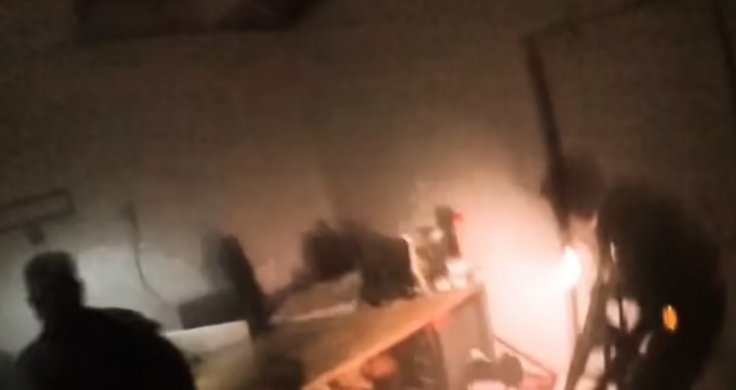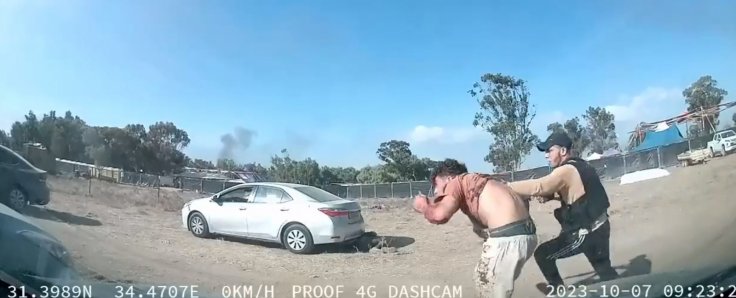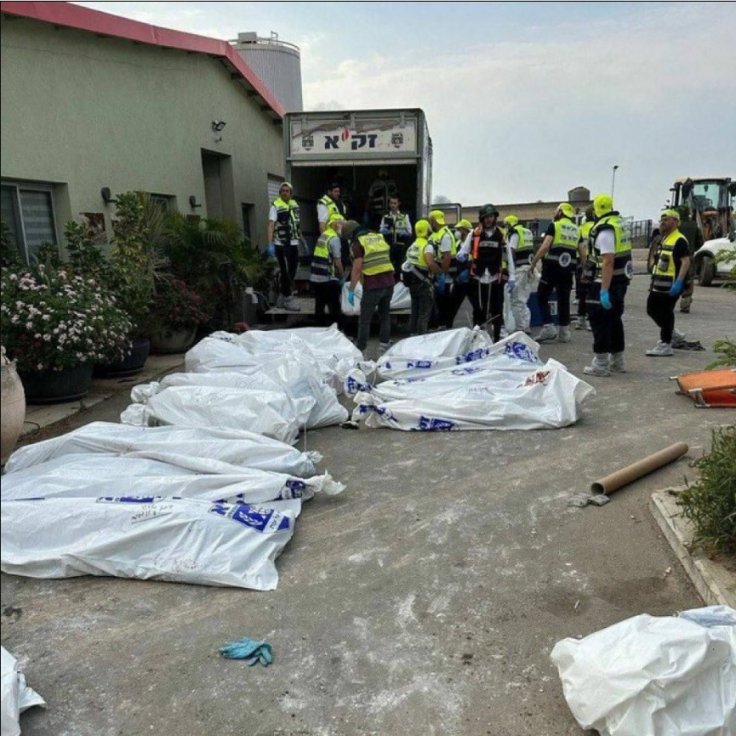Disturbing video footage has emerged that captures the moment Hamas militants infiltrated an Israeli compound, injuring multiple female soldiers using grenades before ruthlessly killing them at almost point-blank range while the victims sought shelter behind a desk. The attack was filmed by a Hamas assailant using a GoPro camera.
The video shows the moment Hamas terrorists launched a surprise attack, appearing to storm an IDF border post during their ruthless assault on Saturday, October 7. Hamas gunmen are seen entering a dimly lit room after throwing a grenade into the confined area. Female soldiers are heard wailing in pain and fear as the attackers surround them, wielding Kalashnikov assault rifles.
Killed Ruthlessly

At one point, it seemed like the gunmen might change their course of action, as they approached the desk where the women soldiers sought refuge, speaking in relatively composed tones while moving an office chair aside.
However, their true intentions soon became clear—they were merely preparing for a ruthless execution.
In the final moments of the video, one of the militants raises his rifle and fires multiple shots at the injured women soldiers from an extremely close range. South First Responders, the Israeli rescue teams first to arrive at the scene after Hamas' attacks, deemed this act as "undeniable proof of war crimes."
"Rather than take the soldiers prisoner, as would be required by international law, the terrorist moves a chair aside to fire at point blank range and execute them," South First Responders wrote on Telegram.
"It doesn't end here. The terrorists fire again. Amidst the last gasps of the conscripts, the terrorist fire a final kill shot to execute them.

"Hamas terrorists carried out intentional executions of injured soldiers in direct violation of basic international law," the group said.
The distressing video offers more proof of the extreme brutality exhibited during Hamas' attacks last weekend.
Teams such as South First Responders, alongside various Israeli security and rescue units, persist in scouring the streets of nearby towns and cities surrounding Gaza. They continue to find more bodies as a somber reminder of the devastating impact of these attacks.
Cornered and Killed Like Animals
Israeli authorities said that over 1,400 Israelis lost their lives in Hamas attacks since October 7. On Monday, they revealed a surge in the number of hostages taken in Gaza, now standing at a minimum of 199, though it remains unclear if this figure includes foreigners.

In response, the Israeli military has launched a relentless bombing campaign across the Gaza Strip, resulting in the reported death of 2,750 Palestinians as of Monday morning, according to Gaza's Health Ministry.
Israel is now expected to launch a ground attack to eliminate Hamas leaders, rescue captives, and dismantle the group's military infrastructure, much of which is located in residential zones. Engaging in street-to-street combat could lead to an escalation in casualties on both sides.

Israel has instructed over 1 million Palestinians, nearly half of Gaza's population, to evacuate Gaza City and its surrounding areas, redirecting them to the southern parts of the enclave, to prepare for a major operation against Hamas in the north, where extensive tunnel networks and rocket launchers are located
Hamas has urged people to remain in their homes within the Gaza Strip, while the Israeli military displayed images of a Hamas roadblock allegedly restricting traffic movement towards the south.
In the coming 24 hours, hospitals in Gaza are expected to deplete their generator fuel, putting thousands of patients at risk, as per the United Nations. The Gaza Strip's lone power plant ceased operations due to fuel scarcity after Israel enforced a complete blockade on the 25-mile-long territory following the Hamas attack.
The World Health Organization said that hospitals are overwhelmed as people are desperately seeking safety.

"We are concerned about disease outbreaks due to mass displacement and poor water and sanitation," it said. In northern Gaza, four hospitals have ceased operations, and Israeli authorities have issued evacuation orders to 21 hospitals.
However, medical professionals, fearing dire consequences for critically ill patients and newborns relying on ventilators, have rejected these orders.
The WHO has warned that thousands of hospital patients are at risk due to water shortages resulting from Israel's halt of water supplies. This, coupled with the lack of fuel for pumps and desalination stations, poses a significant threat to medical facilities and patients.








